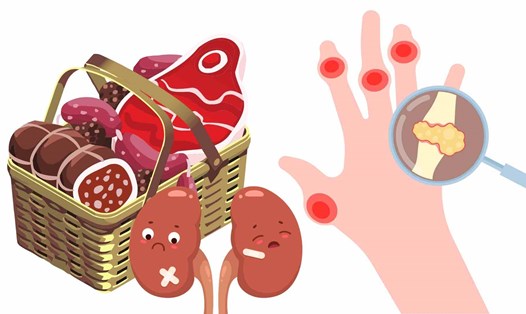Nephrologist says that early recognition of abnormal changes in the body can help prolong the life of the kidneys and improve quality of life.
Persistent weakness
One of the outstanding signs is swelling in the legs, ankles, feet or eyelids. When the kidneys are weakened, the ability to excrete salt and water decreases, leading to fluid accumulation. According to Dr. Joseph Vassalotti, an expert at the National Kidney Foundation (USA): "During a period of swelling despite eating normally is a clear warning sign that the kidneys are no longer filtering effectively".
little or no change in urine color
When entering the severe stage, urine output can decrease significantly. Dark urine, foaming or mixed with blood reflects serious damage to the kidney gland. any sudden changes in urine frequency or characteristics need to be checked immediately, especially in people at high risk such as diabetes and high blood pressure, says Professor Susan Quaggin, President of the American Neurological Association.
Extreme fatigue, shortness of breath and nausea
When the kidneys can no longer filter toxins, waste accumulates in the blood, causing anemia, metabolic failure and electrolyte disorders. Patients are prone to prolonged fatigue, difficulty concentrating, shortness of breath or nausea. Many patients described their bodies as lead-prone, says Dr Graham Abra, a US-based nephrologist.
Experts recommend that people with underlying diseases should have regular kidney function tests, while controlling blood pressure, blood sugar and eating habits to reduce the risk of severe progression. Early detection helps timely treatment, delaying the need for blood filtration.











